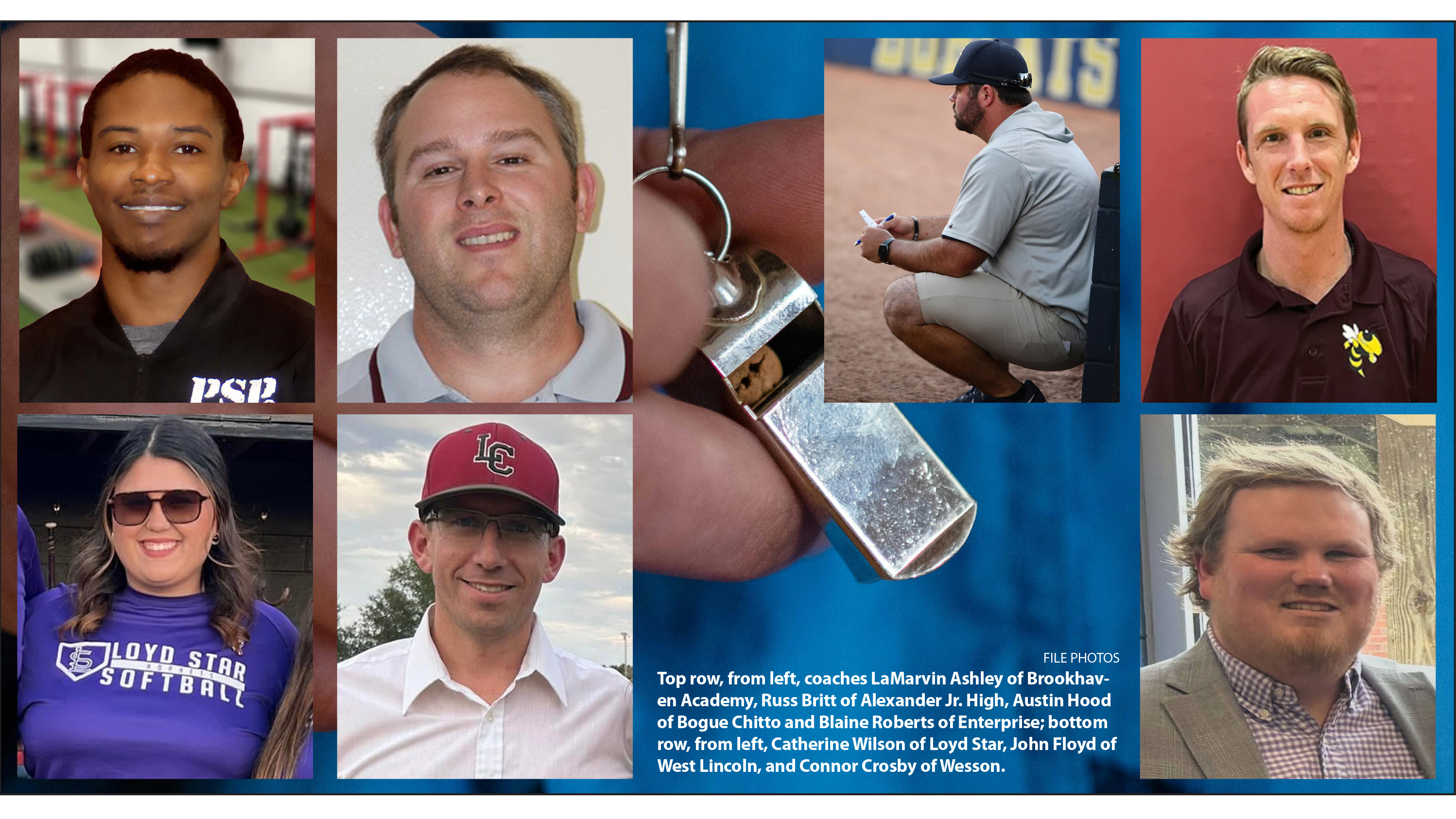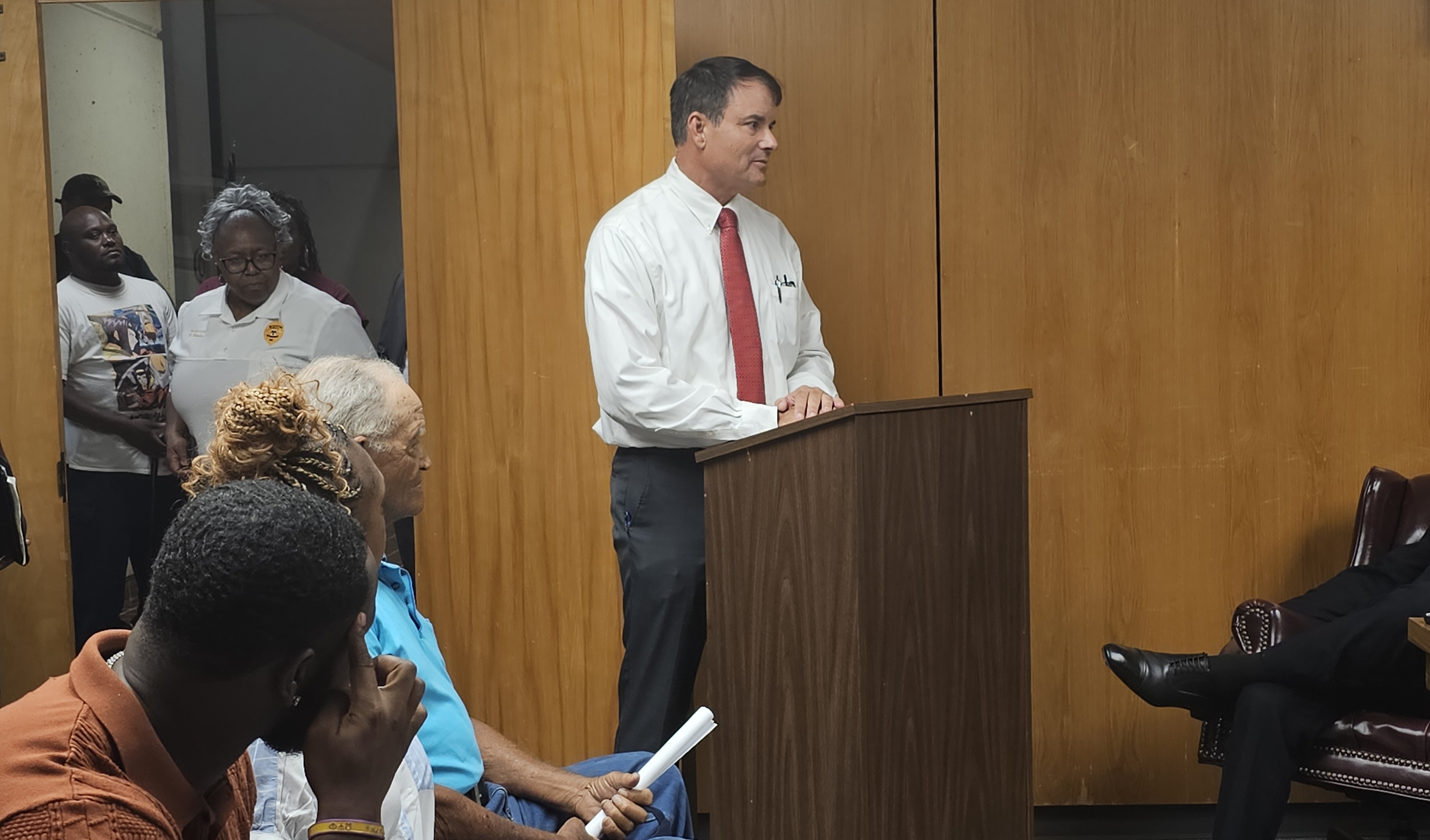Authorities seek comment on 1955 murder cold case
Published 5:00 am Tuesday, May 12, 2009
In 1955, war veteran, farmer and community leader Lamar “Ditney”Smith drove a couple to the Lincoln County courthouse on August 13,to deliver their absentee ballots. It would be the last thing heever did.
That day, Smith, who was black, was shot on the courthouse lawnafter an altercation with three white men. Accounts say a crowd ofbystanders saw it happen, but since then, nobody is talking.
Thursday night, members of the community will be given anotherchance to tell what they know about Smith’s killing and othercrimes from the civil rights era that they might be privy to.Filmmaker Keith Beauchamp and the Federal Bureau of Investigationwill hold a public forum Thursday at 7 p.m. at St. James BaptistChurch to screen Beauchamp’s 2005 documentary on Smith’s death,”Murder in Black and White.”
“A lot of us hear about these things and it doesn’t affect orhit home to us, but when you see this piece it really brings youthere. For that 45 minutes of the documentary, you’re in the shoesof the victim and you don’t see black and white at that point, yousee humans,” Beauchamp said.
Beauchamp said he hoped the forum would be a chance for peopleto open up and give closure to Smith’s remaining family. He said ithas been hard to get people to discuss the incident, and that ofall the stories of civil rights crimes that he has told, Smith’shas been the hardest to unearth.
“Of all the cases I’ve dealt with, including Emmitt Till … theLamar Smith case is the most difficult, and part of that is theconnection to the White Citizens Council,” Beauchamp said. “But therest of it is just people in the community, there’s a brick wallI’ve never experienced in Brookhaven. Nobody wants to talk aboutthat case, even the black elders in the community.”
The ties Beauchamp spoke of were to a white organizationsupported by many anti-civil rights types in the mid-1900s.
Noah Smith, a white farmer reportedly seen fleeing the scenewith blood splattered on his clothes, was the initial suspect.Sheriff Robert Case and District Attorney E.C. Barlow alleged thatNoah Smith had shot Ditney Smith for campaigning against the BeatFive supervisor at the time.
Smith and two others were arrested. But on Sept. 13, 1955, anall-white grand jury failed to return any indictments.
Beauchamp said his forum will be a chance for people to watchhis documentary and comment on it, but also to discuss things theyremember from that time with him and with FBI agents who havereopened the cold case.
“In terms of Lamar Smith we know basically that the men arrestedare dead. But this is an opportunity to give closure to the family.Not only that, but the community as a whole,” he said. “Nobody sawa thing, nobody remembers the case or they’re afraid to say if theydo. This is an outreach effort, another avenue of us reaching outto the community.”
The FBI has reopened the case as a part of a probe intocivil-rights-era crimes. Lincoln County Sheriff Steve Rushing saidhis office doesn’t have any records from before about 1980, butthat they are assisting the FBI in any way possible.
But it’s not just about gleaning information from the community.It’s also a chance to inform them about a man who died givingpeople the freedom he also fought in World War I to give them.Beauchamp said it’s also a chance for blacks and whites to talk outthe pain from that era and get a fresh start.
“I think it’s extremely important that the community know thesurroundings of his death, and this gives them a platform to talkabout their loved one, and gives the public a chance to talk abouthis death,” he said. “I think the community is going to becaptivated by it and it may dredge up old feelings, but that needsto be done in light of what the FBI is currently doing. If thefamily doesn’t have truth and closure, they’ll never be able tomove on.”
Beauchamp hails from Baker, La., and he said he’s been familiarwith Brookhaven for a long time. He is excited about a chance tobring his documentary to the community.
“Mississippi is my second home because I’ve done so much workthere,” he said. “I’m used to the people, and I’m really excitedabout he chance to bring this documentary to the community.”




